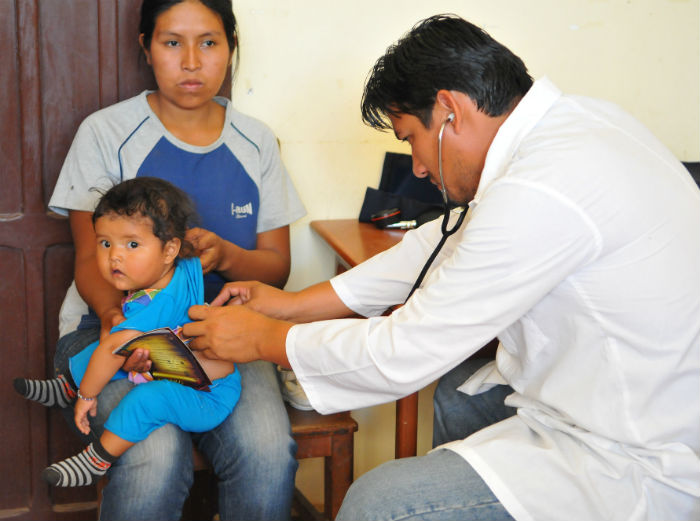By: Inga Vesper
Send to a friend
The details you provide on this page will not be used to send unsolicited email, and will not be sold to a 3rd party. See privacy policy.
[LONDON] Neglected tropical diseases (NTDs) affect poor people in rich countries as well as poor ones, so all nations must fight them together, a conference heard.
Climate change and international travel allow viruses and parasites to spread across the world, far beyond developing countries, said Peter Hotez, the United States science envoy for the Middle East and North Africa, at an event in London, United Kingdom, last week.
For example, “there are 12 million US Americans with a neglected tropical disease, but awareness of this is nil,” he told the British Society for Parasitology’s spring meeting on 12 April.
“We must put more pressure on leaders to take care of the health of their poorest people.”
Peter Hotez, United States science envoy for the Middle East and North Africa
“Nowadays, you find most cases of neglected tropical diseases in booming countries that have remaining pockets of poverty, such as China, India, Mexico, Brazil and the Balkans,” added Hotez, who is also the dean of the National School of Tropical Medicine at Baylor College of Medicine in the United States.
Neglected tropical diseases, such as Chagas’ disease, leishmaniasis and schistosomiasis, are rarely deadly. But the long-term health problems they cause can slow development as affected children miss school and adults miss work. A disease is considered neglected if it gets little international attention from either politicians or scientists.
Hotez explained that rich, middle-income and poor countries need to unite their efforts to control NTDs and tackle their development impact: “We must put more pressure on leaders to take care of the health of their poorest people.”
The UN’s third Sustainable Development Goal says all people should live healthy lives. But many NTDs are on the rise, Hotez said. Schistosomiasis infection rates, for example, increased by 30 per cent between 1990 and 2015, the conference heard.
This situation could be tackled with better screening programmes and more international collaboration on identifying and containing disease hotspots, said Kat Rock, a sleeping sickness researcher at the University of Warwick in the United Kingdom. Rock found that the Gambian strain of sleeping sickness may be underreported by more than 70 per cent, as screening for this disease is haphazard and ineffective.
“The high-risk people — the poorest or those who live in remote areas — do not participate in active screening,” she told the event. “But screening is so important, as you find more people with the disease, treat more people and thus take them out of the infection chain.”Conference attendees agreed that better collaboration on screening would also benefit rich countries, which are seeing more NTDs but are struggling to contain them, as many doctors do not recognise the symptoms.














